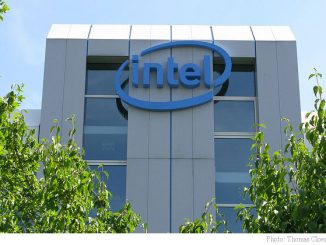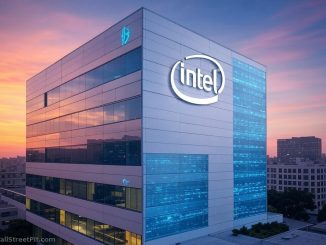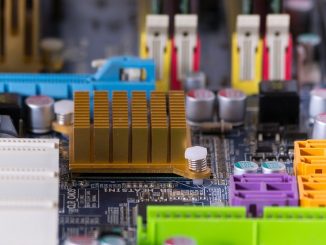- The potential breakup of Intel (INTC) is complicated by international regulations and geopolitical tensions, involving strategic technological interests and national security concerns, particularly with mixed signals from the U.S. government regarding foreign acquisitions.
- Various suitors like Broadcom (AVGO) and Silver Lake have shown interest in different parts of Intel’s portfolio, reflecting the company’s valuable but complex asset base, with past failed deals like Intel’s acquisition attempt of Tower Semiconductor (TSEM) highlighting regulatory challenges.
- The restructuring of Intel would require navigating a complex web of international approvals, symbolizing broader issues of technological nationalism and global trade, with outcomes potentially setting precedents for future tech transactions and affecting the semiconductor industry’s global landscape.

The potential breakup of Intel (INTC), one of America’s most iconic technology companies, has emerged as a complex geopolitical puzzle that extends far beyond American shores. The semiconductor giant’s future has become entangled in a web of international regulations, political sensitivities, and strategic technological interests that mirror the increasingly fragmented state of global trade relations.
The situation has been complicated by mixed signals from Washington regarding potential foreign acquisitions. While some reports suggest openness to Taiwan Semiconductor Manufacturing Company (TSMC) as a potential buyer, others indicate resistance from the Trump administration to foreign ownership of Intel’s assets. This uncertainty reflects the broader tensions surrounding critical technology infrastructure and national security concerns.
Multiple suitors have emerged with different interests in Intel’s vast portfolio. Broadcom (AVGO) has reportedly set its sights on Intel’s chip design operations, while private equity firm Silver Lake has shown interest, as per Reuters, in acquiring a stake in Altera, Intel’s programmable chip division. These potential deals underscore the valuable nature of Intel’s diverse technological assets, but also highlight the complexity of dismantling such an integrated corporation.
Recent history serves as a sobering reminder of the challenges facing any potential deal. Intel’s failed attempt to acquire Israeli chipmaker Tower Semiconductor (TSEM) in 2023, resulting in a $353 million termination fee, demonstrates how regulatory hurdles can derail even well-planned acquisitions. This episode, along with Qualcomm’s (QCOM) unsuccessful $44 billion bid for NXP Semiconductors, which spanned from October 2016 to July 2018, underscores the significant influence of global regulatory environments, including China’s, over semiconductor industry consolidation.
The semiconductor industry’s strategic importance has made it a focal point of international trade and security discussions. Any major restructuring of Intel would require a delicate diplomatic dance, securing approvals from multiple regulatory bodies across the United States, Europe, and Asia. As Wedbush analyst Matthew Bryson aptly points out, the fundamental challenge lies in achieving consensus among all relevant regulatory authorities.
Intel’s situation exemplifies how the semiconductor industry has become a battleground for technological supremacy among global powers. The company’s ability to execute any strategic reorganization will ultimately serve as a barometer for international cooperation in an era of increasing technological nationalism. The outcome of this corporate restructuring effort will likely reveal much about the current state of global trade relations and the future of international technology partnerships.
At its core, this is not merely a corporate restructuring story, but rather a reflection of the complex interplay between national security interests, economic strategy, and technological independence in today’s multipolar world. The resolution of Intel’s breakup ambitions will likely set important precedents for future international technology transactions and could significantly influence the global semiconductor industry’s trajectory.
WallStreetPit does not provide investment advice. All rights reserved.
- Bulenox: Get 45% to 91% OFF ... Use Discount Code: UNO
- Risk Our Money Not Yours | Get 50% to 90% OFF ... Use Discount Code: MMBVBKSM
Disclaimer: This page contains affiliate links. If you choose to make a purchase after clicking a link, we may receive a commission at no additional cost to you. Thank you for your support!




Leave a Reply